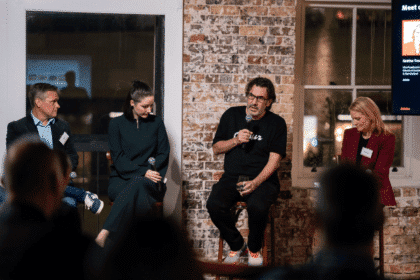Banks reap huge rewards from transaction payments, and seemingly offer little in the way of service. That’s exactly the kind of slow moving carcass-on-a-plate incumbency that the dotcoms have turned into dinner-time repeatedly over the last two decades.
Facebook made a long anticipated entry into the payments market today launching a facility in the US to enable friends to send each other money via messaging – and all fee free.
The opportunity is potentially huge, and Facebook now joins Apple and Google in chasing the market.
In the recent Walker Sands’ 2015 Future of Retail Study researchers argued the trends point to a major player able to seamlessly connect with today’s consumers taking the lead in the mobile/ digital payments space. According to that study:
Cash use continues to be on the decline – only 11 per cent of consumers have paid for something in cash in the past day and 59% of consumers carry less than $20 in their pocket.
Consumers are waiting for a trusted source – while only four per cent have used Apply Pay, 18 per cent say its introduction makes them more likely to make a purchase with their smartphone in the next year. The number rises to 36 per cent when asking Apple users.
Consumers – especially younger generations – are looking for the convenience of peer-to-peer payments – Half of consumers ages 18-25 say they are likely to exchange money with a friend or colleague via a mobile application such as Venmo, QuickPay, etc. in at least one payment scenario, compared to only 19% of those ages 46-60.
However, there’s no major loyalty yet to mobile payments: two per cent have used Venmo and 16% have used banking applications, such as QuickPay, to transfer funds.
Consumers are most likely to use mobile payment applications for social events (and Facebook is a social tool): Restaurants (24 per cent) and bars (17 per cent) were the most popular reasons consumers cited for using peer-to-peer applications.
The Social Network is parlaying eight years of experience it developed processing several hundred million transactions a year for advertisers and games developers and turning its attention to services for consumers.
Who you gonna trust?
Facebook played up its security credentials which is a critical consideration if it wants to take business from traditional financial services providers.
It says the payment systems are kept in a secured environment separate from other parts of the Facebook network which receives additional monitoring and control. And it says it has built a team of anti-fraud specialists to monitor for suspicious purchase activity to help keep accounts safe.
For great insights into disruptive business models visit Daze of Disruption now and secure your ticket to Australia’s best digital transformation forum.
This article first appeared on www.which-50.com








